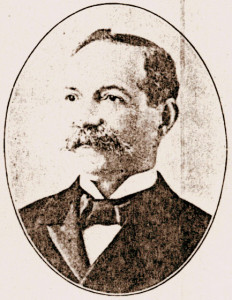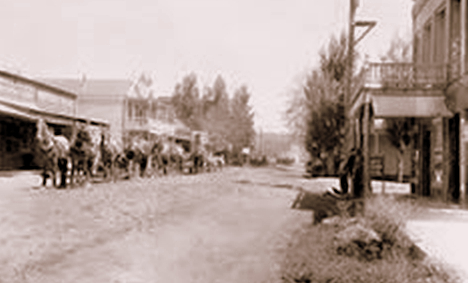Samuel Hart
Value Codes: I – E – L – P
Samuel Hart was born in Austria in 1837.
At the age of 18, he traveled to California by sailing around the Horn.
Along the way . . . .
Samuel Hart first settled in Sacramento, where he was engaged in the mercantile business.
At the outbreak of the Civil War, Hart went to Mexico where, for several years, he was a mine superintendent.
San Francisco
Upon returning to San Francisco, Samuel Hart established a wholesale and retail produce business.
At the same time, he retained mining interests in Nevada and Arizona.
Samuel Hart served as a director of the Eureka Consolidated Mine of Eureka, Nevada.
For many years, he had large land holdings in Ione in Amador County, in California’s Gold Country.
Hart’s prosperity in business allowed him to retire in 1881, at age 44.
Community
Samuel Hart was a faithful member of Congregation Emanu-El in San Francisco.
“Charitable to a great degree, a kindly disposition, always jolly and full of good cheer to all he came in contact with.”
— Rabbi Martin Meyer, 1916
Family
Samuel Hart married Johanna Kanitz in 1865.
Together, they had three children: Benno, Mrs. Charles Heymann, and Julian.
Samuel Hart died in 1899.
Source
- Martin A. Meyer, The Jews of San Francisco (San Francisco: Emanu-El, 1916).
David Epstein is curator of this Samuel Hart exhibit.
======================================
Jews in the News
–About this time–
Conscience Money
In Nevada City, California — 1870
Nevada City — Three of our Jewish merchants, received each an envelope from Carson, Nevada, containing a dollar greenback, but no letter or information whatever. The conjecture is that the sender formerly lived in Nevada City and took advantage of the simplicity of these three merchants, and, when suffering from an attack of kleptomania, carried away more than was strictly honest. The greenbacks were conscience money, probably. The currency is pronounced good.
—The Hebrew, San Francisco, May 13, 1870 [WSJHQ 10/1]
======================================


